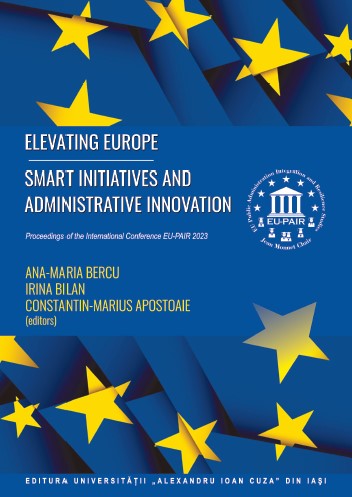THE MULTI-STAKEHOLDER NETWORK AS POLICY TOOL FOR A ROBUST GOVERNANCE OF THE PUBLIC ORGANIZATIONS IN TURBULENT TIMES
THE MULTI-STAKEHOLDER NETWORK AS POLICY TOOL FOR A ROBUST GOVERNANCE OF THE PUBLIC ORGANIZATIONS IN TURBULENT TIMES
Author(s): Mihai Talmaciu, Irina Teodora Manolescu
Subject(s): Governance, Public Administration, Management and complex organizations
Published by: Editura Universităţii »Alexandru Ioan Cuza« din Iaşi
Keywords: governance; public organization; multi-stakeholder initiative; resilience;
Summary/Abstract: In the recent years, both public and private organizations are facing various complex and turbulent issues, with disruptive effects, that require appropriate responses to improve their resilience and robustness. The multi-stakeholder model, based on an extensive partnership between different public and private entities, can be a suitable mechanism for robust governance in a surprising, unpredictable and uncertain environment. Multi-actor networks help to mobilize valuable resources, to stimulate innovation and identify joint solutions, but take on many of the difficulties and redundancies specific to joint action. Considering the constraints, the lack of flexibility and the reduced administrative capacity of the public system in Romania, organizational changes are needed to improve the resilience and robustness, starting from the main guidelines of the European public system. Organizational changes refer to the following aspects: the ability to redesign policies in a coherent way, the adoption of appropriate policies and procedures, the presence of information systems and networks able to provide effective and prompt feedback, the flexibility, the agility, the capacity to reform. The paper illustrates the application of multi-stakeholder model as a policy tool to improve the resilience and governance of public and private organizations. From a methodological point of view, the approach is an integrated one, based on extensive documentation on the involvement of public organizations in multistakeholder partnerships. The results illustrate the benefits of multi-stakeholder approaches and some dysfunctions characteristic of these partnerships. The paper also aims to identify solutions to overcome the identified negative aspects, that affect their functionality: the lack of strategic orientation and the reduced administrative capacity, the lack of resources and the reduced degree of involvement of public and private entities due to the early stage of development of the multi-stakeholder model in the Romanian economic and so-cial context.
- Page Range: 273-287
- Page Count: 15
- Publication Year: 2023
- Language: English
- Content File-PDF

